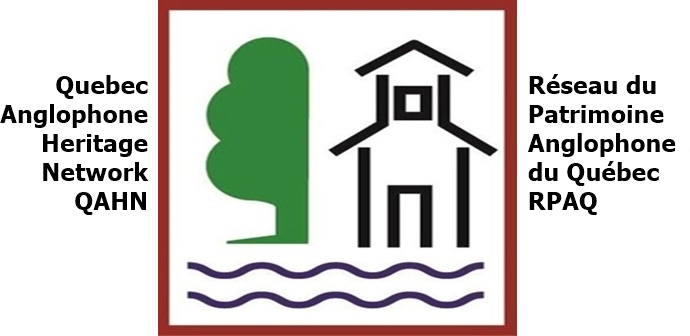Whether you are new to genealogy or have been researching your family for years, there is always room to learn something new. We offer webinars on a wide variety of genealogical topics.
Below is a list of our upcoming webinars:
Demonstration of the Québec Genealogical eSociety
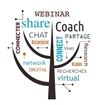
Date and Time: Multiple dates - all starting at 7:30 p.m. Eastern Time
Language: English
Description: Wondering what the Québec Genealogical eSociety is all about? Looking for a new and innovative approach to researching your ancestors in Quebec? Join us for a FREE live demonstration of all the features of this "one-of-a-kind" genealogical society.
Presenter: Johanne Gervais
Click here to see the available dates and to register
Below is a list of recorded webinars you can view for $5 CAD per webinar.
Databases
Online Demonstration of the NosOrigines Database

Language: English
Description: Are you wondering what the NosOrigines free database is all about? Judy will provide you with an online demonstration of how this database could help you with your ancestral research in Quebec and store your family information on NosOrigines for free.
Presenter: Judy Gauthier
Recorded webinar registration
MyHeritage Library Edition - Demonstration
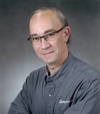
Language: English
Description: Wondering how to use MyHeritage’s Library Edition?
The MyHeritage Search Engine is a state-of-the-art tool for finding historical records that mention your ancestors.
Discover the advanced technology behind the scenes and learn how to take full advantage of the search engine’s robust features to explore the lives of your ancestors in Quebec, France, and elsewhere.
Available in 42 languages, MyHeritage Library Edition is the industry's most multilingual family history research database. It includes billions of historical documents from 48 countries, millions of historical photos, public records, indexes and additional resources that span the past five centuries.
Presenter: Daniel Horowitz
Recorded webinar registration
MyHeritage - Online French Records and Research at Filae, MyHeritage, and Beyond

Language: English
Description: Success in finding and documenting our French ancestors is increasingly enabled by online historical records and indexes that help us find these incredible records. In this session we will learn about the historical records available at Filae and MyHeritage and how to use them effectively. We will conclude with strategies and a road map of how to use resources available at French departmental archives and the Bibliothèque nationale de France.
Presenter: Mike Mansfield
Recorded webinar registration
Handwritten Text Recognition with Transkribus

Language: English
Description: General introduction to Transkribus and the READ-COOP, focusing on what is possible and which kinds of projects we work together with, some details about the technology behind and a small outlook on what should be achieved in future. Transkribus is a comprehensive platform for the digitisation, AI-powered text recognition, transcription and searching of historical documents – from any place, any time, and in any language.
Presenter: Günter Mühlberger
Recorded webinar registration
BMS2000 Database

Language: English
Description: Do you need a refresher course on the BMS2000 database? Do you need a few more tips and tricks to help find that elusive record or to narrow down your search results? Then this webinar is for you.
Presenter: Johanne Gervais
Recorded webinar registration
PRDH-IGD Database

Language: English
Description: Mr. Bertrand Desjardins, Genealogist emeritus, PRDH-IGD, will provide an online demonstration of the PRDH database to show you all of its functionality and some tips to help you with your research.
Presenter: Mr. Bertrand Desjardins
Recorded webinar registration
FamilySearch
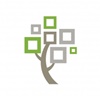
Language: English
Description: FamilySearch is the largest genealogical organization in the world. Millions of people use FamilySearch records, resources and services to learn more about their family history. Marcel Blais will give you a live demonstration of FamilySearch, including how to create your family tree and how to find out more about your ancestors in Quebec.
Presenter: Marcel Blais
Recorded webinar registration
Diving into the Databases - BMS2000, PRDH, and Fichier Origine
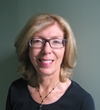
Language: English
Description: How to go from the shallow end to the deep end in one easy lesson with the BMS2000, PRDH, and Fichier Origine databases.
Presenter: Johanne Gervais
Recorded webinar registration
DNA
RESEARCH, DNA AND SERENDIPITY: How I discovered who my ancestors really were

Language: English
Description: Debbie Dee used to think that she had a good understanding of her family’s culture, history and ethnicity, until she started to research her family tree. She found out that her family’s information was mostly right about who they thought they were, but she also learned so much more about their heritage, including details that the family never knew about. She will talk about how traditional research got the ball rolling, DNA testing brought some new discoveries, and serendipity stepped in with some unexpected findings then literally delivered them to her doorstep.
Presenter: Debbie Dee
Recorded webinar registration
Family History Research Using Genetic Genealogy

Language: English
Description: My presentation will be a general overview of genetic genealogy testing. It will highlight the differences between the three most common DNA tests that a person can do and provide some guidance on how or what the focus of each test is. The largest focus will be on autosomal testing as it involves all lines of a person's ancestry and is by far the most enjoyable for making new family connections and finding new cousins.
At the end of my presentation I will cover some of the tools that can be used at the testing sites as well as the third party site gedmatch.com.
Presenter: Jason Porteous
Recorded webinar registration
Cemeteries
Bring Out Your Dead

Language: English
Description: Mark Gallop, president of Friends of the Mount Royal Cemetery, examines the social and historical implications of the evolution of burial practices in Montreal through the centuries.
Presenter: Mark Gallop
Recorded webinar registration
Stories from the Mount Royal Cemetery

Language: English
Description: A virtual guided tour of famous people buried in Mount Royal Cemetery will bring to life many interesting personalities with facts and anecdotes linking them to important historic events. These great Montrealers, who have impressive monuments to commemorate them, played a major role in the rise of steamships, railways, banks, industries and institutions such as hospitals, schools and museums. This is a sequel webinar to the introduction to the Cemetery presented in March.
Presenter: Myriam Cloutier, Director of Heritage Programs at Mount Royal Cemetery in Montreal
Recorded webinar registration
Mount Royal Cemetery

Language: English
Description: Myriam Cloutier, Director of Heritage Programs at Mount Royal Cemetery in Montreal, will discuss the history and evolution of Mount Royal Cemetery (including Hawthorn-Dale and Belvedere Cemeteries) and stories of interesting burials and monuments. She will demonstrate how best to use the on-line genealogy search function and how to search for a monument if able to visit the cemetery in person. Myriam will also talk about the Friends of the Mount Royal Cemetery’s role in promoting and preserving Mount Royal Cemetery’s history through monument restoration, walking tours, and numerous publications.
Presenter: Myriam Cloutier
Recorded webinar registration
Writing
Self-Publishing on Amazon

Language: English
Description: Do you have treasured family documents, photos, stories, genealogical charts, and letters that are calling out to have their story told? Do you want to share this information with family and friends but are not sure where to begin? Self-publishing on Amazon is an interesting and rewarding process where you have complete control over every aspect of the production of your book.
This session will provide you with a high-level view of how to self-publish a book on Amazon.com. Focus will be on 1) the preparation of your book material before uploading the content to Amazon and 2) reviewing Amazon's required information in order to self-publish.
Presenter: Johanne Gervais
Recorded webinar registration
Things you can learn by writing family history

Language: English
Description: A panel discussion and a webinar!
Every good story needs a surprising anecdote, a good quote from a participant and some sort of change in circumstances. Looking for these elements in genealogical records will make you a better researcher. You'll look more carefully at census documents to see if you can figure out who did what and where. You'll examine social histories in detail to see if you can find an oath or contract that you can use for a quote. All of a sudden, people will become more important. What did they do? What did they say? With whom did they clash? These are the kinds of questions that our panel of family historians will discuss. A short presentation listing some tips to get started follows.
Presenter: Tracey Arial, Sandra McHugh, Michael Laekas, and Janice Hamilton
Recorded webinar registration
Self-Publishing Your Family Stories

Language: English
Description: Tracey Arial and Sandra McHugh will take you on the same journey they followed with the self-publishing of their book "Beads in a Necklace".
Presenters: Sandra McHugh and Tracey Arial
Recorded webinar registration


Write Your Family Stories

Language: English
Description: Inspirations, advice, tips and tricks: all you need to trace the footsteps of your ancestors and write their stories.
Presenters: Sandra McHugh and Tracey Arial
Recorded webinar registration


Family and History
Diversity, Equity and Inclusion in Genealogy

Language: English
Description: "Diversity is where everyone is invited to the party. Equity means that everyone gets to contribute to the playlist. Inclusion means that everyone has the opportunity to dance." — Dr. Robert Sellers, Vice Provost for Equity and Inclusion & Chief Diversity Officer, University of Michigan
Diversity, Equity and Inclusion in genealogical research involves seeking out the stories, histories and experiences for individuals from diverse socioeconomic backgrounds, different races, ethnicities, cultures, abilities and sexual orientations. As genealogists and family history researchers we need to avoid perpetuating biases present in historical records, promote equity, consider multiple perspectives, use inclusive language and reflect the richness and complexity of human experiences.
Presenter: Holly Haimerl
Recorded webinar registration
From Colonial Canals to the Seaway: Migration and Development in the St. Lawrence Watershed

Language: English
Description: The desire to access the interior of the North American continent with ocean-going vessels pre-dates European settlement. In 1689 François Dollier de Casson, a Sulpician priest, was the first to start digging to circumvent the Lachine Rapids. Inter-governmental discussions for the "St. Lawrence Waterway Project" dated back as far as the 1890s. Efforts culminated with the 1959 opening of the St. Lawrence Seaway as "the world's longest inland deep draft marine highway", forever changing Quebec's geographic, economic, and political landscapes.
With a focus on both geography and biography, this tale will be told through the diverse and driven personalities who worked to reshape the rivers and lakes of Quebec and beyond for navigation.
Presenter: Mark Gallop
Recorded webinar registration
Tracing your Loyalist Ancestor
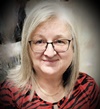
Language: English
Description: Who were the Loyalists? Where did the Loyalists settle? Most settled in Ontario (Upper Canada). Did any Loyalists settle in Quebec (Lower Canada)? Where did they settle in Lower Canada? (Sorel, Gaspe, Eastern Townships). What is the most difficult generation to research when applying for your UEL certificate?
Presenter: Elizabeth "Holly" Haimerl
Recorded webinar registration
A French-Canadian Daughter or Son of the American Revolution
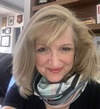
Language: English
Description: Discover if your ancestors fought with the Americans during their fight for Independence. There are a surprising number of people that can trace their heritage to these amazing French-Canadian fighters. Join us as we explore the world of 1776 and how French Canada, and the Patriots of the Revolutions crossed paths!
Presenter: Lisa Elvin-Staltari
Recorded webinar registration
French Canadian Research in New England
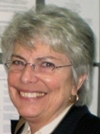
Language: English
Description: For beginners and intermediate researchers. This presentation can only cover a miniscule sampling of the difficult roadblocks you can encounter in researching in New England. With experience you will learn to spot the likely culprits but if you are just beginning your genealogical foray into New England this presentation will help you. The focus will be on the myriad name changes that occurred as your ancestors left Quebec and entered the U.S. - how and why the names got so corrupted.
Presenter: Pauline Cusson
Recorded webinar registration
THE BACHELORETTE NEW FRANCE: Stories of Bigamy, Incest, Witchcraft and Murder
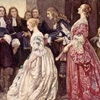
Language: English
Description: In 1630 New France was populated mainly by men. France recognized that there were threats to its economy from the British in the south, and set out to grow the colony by encouraging young women to immigrate, marry and populate the young colony.
Between 1634 and 1663 the Company of 100 Associates sponsored young women immigrating to Canada. These 260 young women were known as Les Filles à Marier. The Company of 100 Associates was disbanded in 1663 and the government of France took over the governing of the colony. At that time King Louis XIV established a program to bring young female immigrants to New France. These 768 women were known as Les Filles du Roi.
Who were these women? Contrary to popular belief, these women were not prostitutes. Many were from poor families looking for a way out of their predicament. These young women were given a choice in marriage, and because men far outnumbered them, they had plenty of choice. They have fascinating stories—including stories of bigamy, incest, witchcraft and murder!
Dawn and Carol will tell some of their stories and along the way show some of the resources they used to trace their family lines.
Presenters: Dawn Kelly and Carol Ufford
Recorded webinar registration
Hidden in Plain Sight: the English in Quebec

Language: English
Description: Of all the groups to come to Canada, the English are by far the least studied, or recognized. In terms of number, immigrants from England were the largest British group to settle in Quebec. The 1991 census found that 1/3 of all Canadians claimed English ancestry.
This presentation will explore the history of the English in Quebec. Where did they settle? How did they settle? I will also discuss the ways in which you can research your English ancestors in Quebec.
Presenter: Dr. Gillian Leitch
Recorded webinar registration
The Nom-Dit: from Oral Tradition in France to Social Institution in New France

Language: English
Description:The French-Canadian population has been distinguished from its beginnings by a particular phenomenon called the nom-dit, a designation which in many cases has established itself as the alternative, main or even unique name of families in the St. Lawrence Valley. The pioneer brought with him a family name but also a profession that traditionally bestowed an oral nickname to its practitioners. Without being specific to New France, this anthroponymic trait carried over from Europe found in the Laurentian colony conditions favorable to a new pattern of inheritance that became extensive: until the 20th century, the designations of a large number of families maintained in unpredictable alternation both the civil name and the dit name.
The military constituted about half of Old Canada’s French settlers and the nom de guerre, one dominant type of dit name, consequently weighed on the rooting of this tradition. The preservation of service names by the demobilized soldiers, and soon-to-be inhabitants, found in this prolonged neighborhood a reinforcing factor. The military’s cultural influence on the new society can be seen in the family-name extension of this professional use in other trades such as among masons or carpenters. Like the soldier, the Ancien Régime’s craftsmen used to adopt within their profession a nom de compagnon whose shedding occurred when they returned to civilian life. New France’s newly-formed population fostered instead the coexistence of both surnames as well as their preservation. A naming duality thus took hold until modern requirements of vital records pressured families to side with one or the other. Only a handful of compounded surnames escaped this fate, such as Gérin-Lajoie or Canac-Marquis.
Pierre Gendreau-Hétu studied linguistics at the Université de Montréal. His graduate research focused on writing systems and their historical typologies. Questions of onomastics subsequently caught the attention of this independent researcher, notably the origin and evolution of surnames in French Canada.
Presenter: Mr. Pierre Gendreau-Hétu
Recorded webinar registration
Our Ancestors of Île d’Orléans
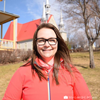
Language: English
Description: Many of us have found some of our first ancestors to have settled on the Island of Orléans. Nothing surprising when we know that the cradle of New-France welcomed over 300 founding families! Many adventures and pitfalls are awaiting our ancestors in the New World. In this presentation, Sabrina will give you a glimpse of the lives of the settlers of the Island of Orléans from the beginning of the colony all the way to 1759. A century of learning, adaptation and discoveries, that's what our ancestors did with resilience!
Passionate about travel, history and genealogy, Sabrina Gamache-Mercurio has been a Chartered Genealogy Genealogist since 2017 and graduated from Laval University in Ethnology. Since 2012, she has been working at the Maison de nos Aïeux, a history and genealogy center on the island of Orléans!
Presenter: Sabrina Gamache-Mercurio
Recorded webinar registration
What were they thinking?

Language: English
Description: A family historian attempts to examine some of her ancestor's remarkable actions through social history.
Presenter: Debbie Dee
Recorded webinar registration
The Lalondes in Canada

Language: English
Description: Judy Gauthier has been researching the origins of her father for several years, in particular her great-grandfather Alfred Lalonde. Judy will talk about the history of the Lalondes, the sources she used, how to find them and the process she used to compile the information.
Presenter: Judy Gauthier
Recorded webinar registration
The Scots in Montreal and Quebec
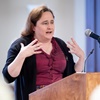
Language: English
Description: The Scots have played an important role in the development and history of Quebec since the advent of British control of the region after 1759. This presentation will provide an overview of the settlement of the Scots in the province (with an emphasis on Montreal), the development of their own cultural institutions such as the Presbyterian Church, voluntary associations such as St. Andrew’s Societies, the Sons of Scotland, and sports clubs organizing curling, golf and shinty. There are a number of resources available to the family researcher, looking for information on their Scottish-Quebec ancestors. These will be discussed, including the use of private or associational archives such as the St. Andrew’s Society of Montreal.
Presenter: Dr. Gillian Leitch
Recorded webinar registration
Fenians in the Neighbourhood
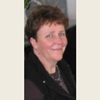
Language: English
Description: Missisquoi Museum curator and a projects director for the Quebec Anglophone Heritage Network, Heather Darch will discuss the community of Missisquoi County that lived close to the border during the Fenian Raids of 1866. While attention has been given to the Fenian soldiers, the Canadian and British militia units as well as the home guards during the Fenian Raids conflict, the citizens of the border region were also involved and directly affected by the military action that took place in what was a relatively quiet region in Quebec. From court documents, letters and diaries, the voices of those who lived along the border add another element to a fascinating local story and an important part of Canadian history.
Presenter: Heather Darch
Recorded webinar registration
By Many Other Names: Identifying Quebec-French Families in Northern NY State

Language: English
Description: This webinar will discuss the variations in Anglicized French family names in counties of Northern and Northeastern NY State
(such as St. Lawrence, Jefferson, Franklin, as well as Washington counties).
We will look at migration patterns during the nineteenth and early twentieth centuries, and how to trace and track families in some of the original records
using online sites and databases such as Ancestry.com/.ca, PRDH, and BMS2000.
Presenter: Pamela Vittorio
Recorded webinar registration
The American Occupation of Montreal 1775-76

Language: English
Description: The Continental Army marched northward in the early days of the revolution with the mistaken expectation that the local populace could be won over to the rebel cause. Montrealers were not so easily convinced. Mark Gallop looks at some of the places and fascinating people involved in the conflict, including Canadians who supported the American side and therefore had to take refuge and eventually settle in New York State after the war.
Presenter: Mark Gallop
Recorded webinar registration
Irish Palatines in Quebec: Final Destination or Whistle-stop on the way to Ontario?

Language: English
Description: The Irish Palatines are one of Canada’s invisible ethnic groups: separated by language, religion and ethnic background in Ireland, they found a hospitable environment when they immigrated to Ontario in the 18th and 19th centuries. Québec was a key destination, too. Many Irish Palatines who had first settled in New York arrived in Québec as Loyalists during the American Revolution. At the end of the war, most were settled on land in Ontario, but a few rogue Palatine Loyalists set up home in Québec's Missisquoi Bay. After the War of 1812, Irish Palatines emigrated directly from Ireland, some settling in southwestern Québec. Yet while they thrived in Ontario, their experience in Québec was quite different. Carolyn talks about the Irish Palatines’ challenges and hardships as Irish Protestants in Québec as well as their migration to Ontario.
Presenter: Carolyn Heald
Recorded webinar registration
Land
Analyzing ancestors’ lives through land registers

Language: English
Description: You'd be surprised at how many secrets are revealed in Quebec land records. Who sold what to whom and when? Who was their landlord, tenant or neighbour? Did they have obligations to a landlord or tenant? The names of spouses, children and in-laws might be found in these records. You might also discover that your ancestor made an oath of allegiance to the Crown or someone else. Were they Loyalists? Did they petition for land? If so, their military service, the names of their parents and other relatives might be listed. If they farmed the land, when they first cleared it or what they grew or livestock raised might be included in land records. Were they participants or witnesses to lawsuits? If nothing else, you'll get a lot of detailed information that will help you find appropriate records in libraries or archives.
Presenter: Tracey Arial
Recorded webinar registration
Miscellaneous
Fascinating Finds: Family History Resources at the McCord Museum

Language: English
Description: Learn how the McCord Museum’s online and in-person resources can help you in your search for genealogical information.
The McCord Museum has a wealth of objects relating to individuals and families and their daily lives, work, and leisure activities. From photographs, paintings, prints and drawings, to archival holdings, and more, the focus is not only on Montreal and Montrealers, but also includes other regions of Quebec.
This webinar will demonstrate how to search for images and objects, digitized archival documents, and other, little-known resources available through the McCord Museum’s website. It will also introduce the viewer to additional information that can be uncovered during an in-person appointment in the Archives and Documentation Centre. This includes a quick survey of the contents of the internal database and the analog finding aids for the as-yet uncatalogued portions of the Notman Photographic Archives.
Presenter: Heather McNabb, Ph.D., Reference Archivist, McCord Museum Archives and Documentation Center
Recorded webinar registration
Family Ancestrees

Language: English
Description: Sue Sullivan, the Graphic Genealogist, is a professional Graphic Designer and owner of FMS Creative Inc. In 2010 she was bit by the genealogy bug and after several months of uncovering great aunts and third cousins (twice removed), inspiration struck. What would an extended family tree, full of cousins look like? As a visual person, she wanted more than a line chart. Sue wanted something visceral, a bold picture that told the story of generations. This was the genesis of Family Ancestrees. Sue will show us her very unique, personal way of showing off your family history as art!
Presenter: Sue Sullivan
Recorded webinar registration
Using City Directories For Genealogical Research

Language: English
Description: Learn how to navigate the online Lovell's Directories for Montreal (1842-2010) and the Marcotte Directories for Quebec City (1822-1976) to understand more about your ancestors, their businesses, neighbours, and communities.
Presenter: Mark Gallop
Recorded webinar registration
Eastern Townships Resource Centre - Live Demo

Language: English
Description: For over 30 years, the Eastern Townships Resource Centre (ETRC) has been a recognized organization for the study of the Eastern Townships of Quebec. As one of the top accredited archives in Quebec, the ETRC preserves the documentary heritage of the Eastern Townships and serves as an archival expertise resource for local heritage organizations. Jody will provide us with a live demonstration of the ETRC including how to explore the archives and search their extensive database.
Presenter: Jody Robinson
Recorded webinar registration
Searching Canadian Census Records with Automated Genealogy

Language: English
Description: The census indices on automatedgenealogy.com were built by hundreds of volunteers with local knowledge and comes with powerful search functions and links to other records. Mark Gallop gives a tour of this free site with search tips and tricks to help you find that elusive relative.
Presenter: Mark Gallop
Recorded webinar registration
Google Earth for Genealogists

Language: English
Description: Google Earth is a free tool that can be used by genealogists to uncover facts and add texture to the stories of peoples' lives.
This webinar will show you the basics of using Google Earth, examples of discovering and validating facts, and how it can be used to present information and stories to other people. Join us to learn how to be a Google Earth detective!
Presenter: Michael Baker
Recorded webinar registration
Does It Tell A Story?

Language: English
Description: Mark Gallop, an archives enthusiast, presented “DOES IT TELL A STORY? What should I do with all my inherited family keepsakes?
Digitization, distribution and disposal: Some lessons learned by an amateur family archivist.”
Presenter: Mark Gallop
Recorded webinar registration

